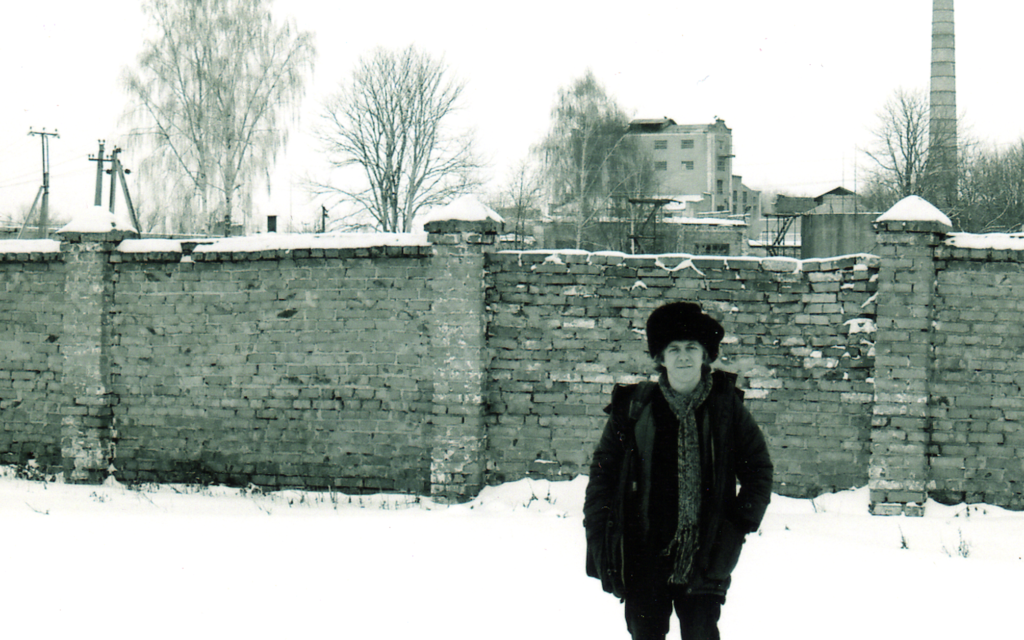How the Russians stole my vodka empire
Haunted by memories of the spirit factory his great-grandfather started and he restored, Dan Edelstyn reveals his own Ukranian nightmare.
There re was a time when Dan Edelstyn never left home without a bottle of vodka in his hand. But don’t be thinking he had a drink problem. Dan was on a mission to introduce his own vodka brand to London’s cocktail bars and restaurants.
When I first met Dan, he was holding a briefcase filled with bottles of his wheat-based liquor, Zorokovich 1917, and his determination to break into the crowded vodka market was to be admired. Key to this admiration was Dan’s resurrection of the Ukrainian vodka factory founded by his great-grandfather, Ilya Zorokovich in 1904.
Get The Jewish News Daily Edition by email and never miss our top stories Free Sign Up
Dan, a documentary maker and commercials director, was only vaguely aware of his family’s Ukrainian Jewish history, but then, while rifling through the contents of his mother’s attic in Totnes, Devon, he discovered a yellowing manuscript penned by his late grandmother.
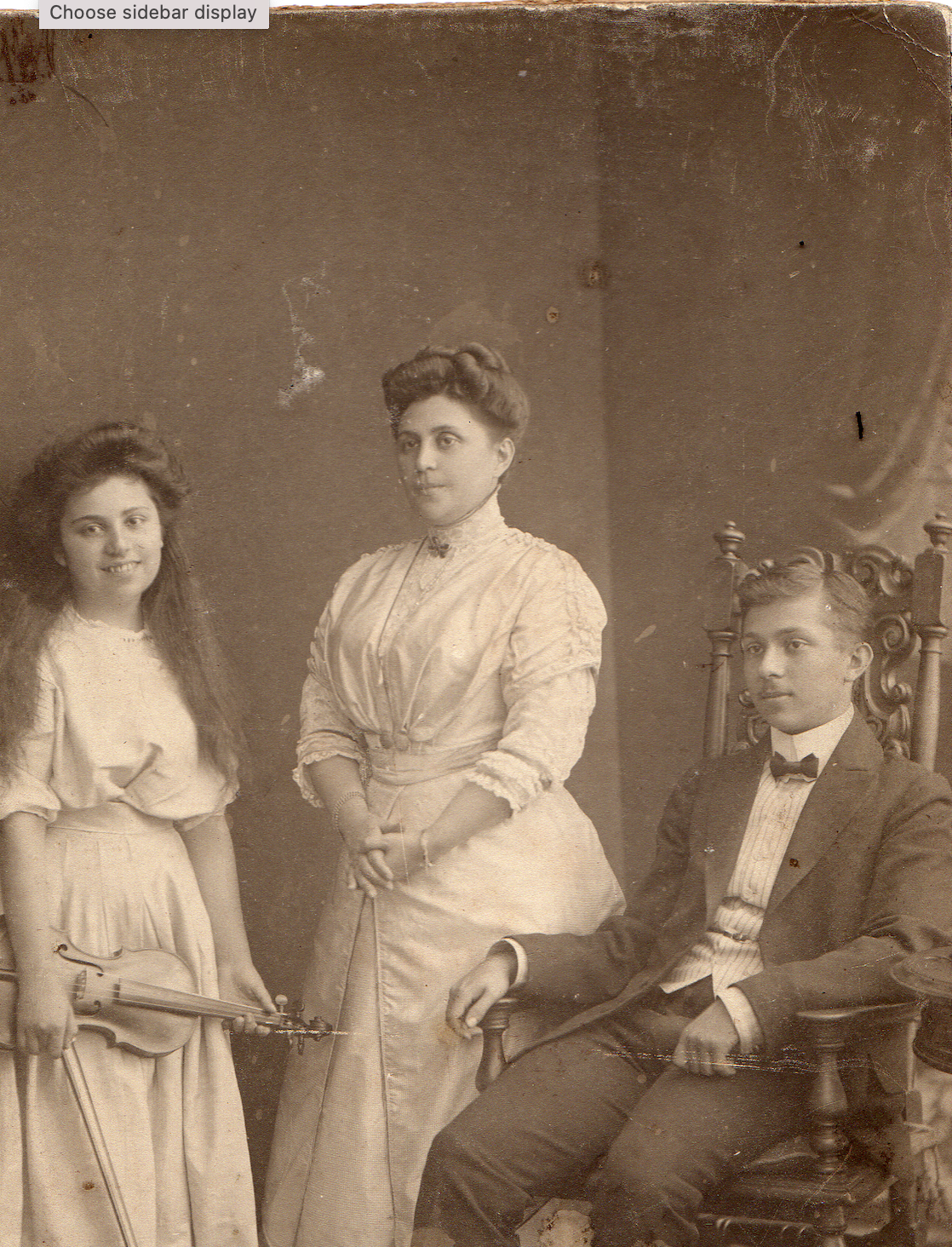
“My grandmother, Maroussia, who was born in 1898, had written about her life in Kiev [as it was then] in the style of a 19th century romantic novelist, so I couldn’t be sure how much was true or embroidered to make it more interesting,” says Dan, a former pupil at Gordonstoun public school. “We knew my great-grandfather had owned land and properties before the revolution, but everything had been expropriated by the Bolsheviks and the family had fled by 1920, taking anything they could carry. There was no mention of a vodka distillery, but my grandmother wrote about a grand country estate and a sugar factory. She left out the location, however, and the only clue was a reference to the ‘little town of K’, which she said took a day to reach by train.”
Convinced that he had found the makings of a great film script, Dan convinced his artist wife Hilary that they could make a stylish documentary to capture the search for his ancestral seat. Weeks of trawling through Ukraine’s National Archive and poring over documents to get information about Maroussia’s home, eventually lead them to the little town of K (Konotop), now called Douboviazovka.
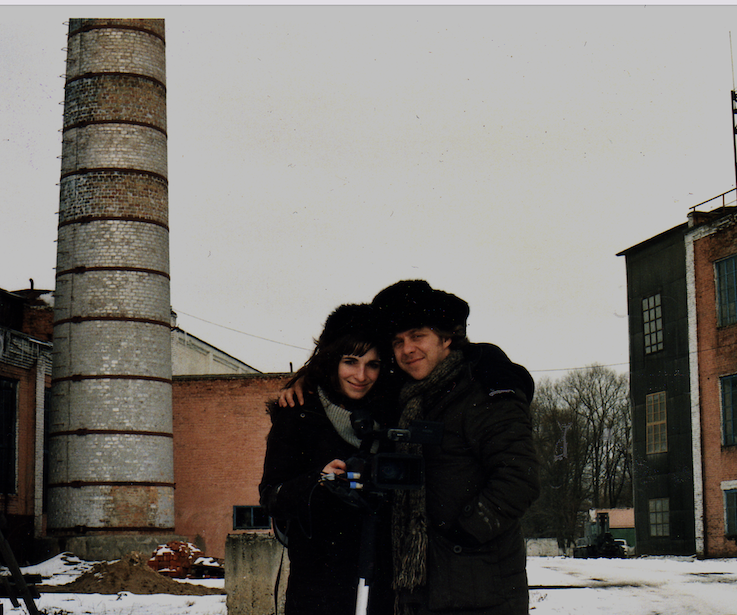
The couple filmed every part of their search as they journeyed to the town only to discover the sugar factory boarded up and they weren’t allowed in. “But then we spotted the distillery, which they confirmed was my great-grandfather’s and it was working,” says Dan, who knew the locals would be suspicious of his arrival as the heir apparent. “There was no precedent in Ukraine for Jewish property to be returned to its rightful owners, so I knew that would never be an option,” recalls Dan. “Luckily, the family name was enough to initiate discussion and I was soon walking around like the lord of the manor. With the distillery edging towards bankruptcy, any help was welcome.”
Post-perestroika Douboviazovka, like so many towns in Ukraine, was economically depressed and many of the younger people had left to find work elsewhere. “The village relied on the vodka factory for employment, but they had no means of selling their produce,” says Dan, who decided on a whim to try to turn the business around.
Still intent on making the film, which became How to Re-Establish a Vodka Empire, Dan simultaneously rebranded the vodka as Zorokovich 1917 and, over five years, created a blend made from spring water from the village well, triple distilled in small batches, and gave it a cool, retro image and packaging. 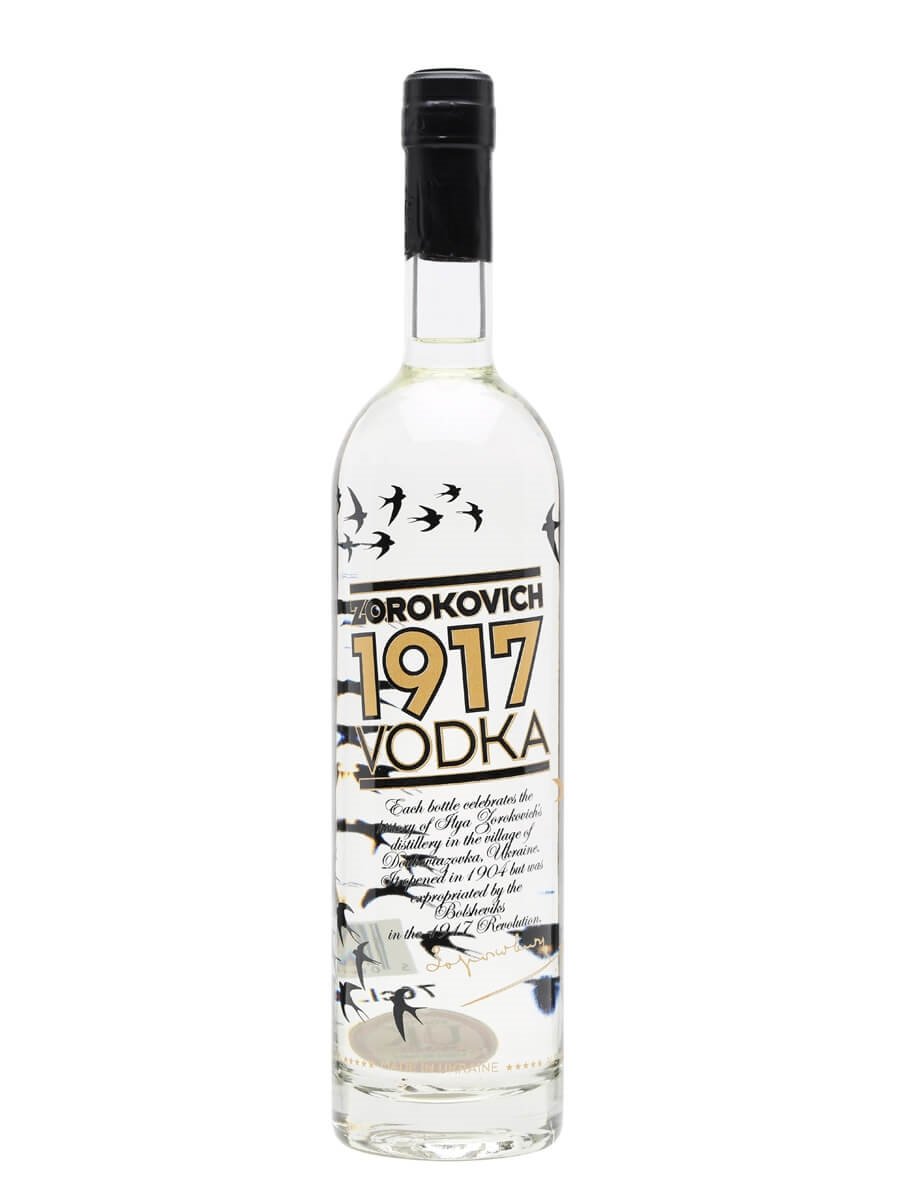
“I felt we would have the edge over other independent brands and an intriguing back story that would captivate,” he reflects, and he was right.
Well reviewed by the experts, Zorokovich 1917 was a bottle of great beauty. Something to be kept on display, not hidden in a cupboard even after it was empty. That was 2012, a year in which Dan visibly had no end of enthusiasm and hope for his product and revelled in his role as
a vodka baron.
Today, that industrious swagger has gone. Not because he was unable to keep going solo without investment as resurrecting the factory was his gift to the town. His film was also well received. Dan is a darker soul because Ukrainians are living the tortuous experience of his ancestors leaving their homeland in fear of their lives.
“Watching them, I understand first-hand the terrible nature of the ‘clan’ who came out of the Donetsk region, and who bullied and marauded their way through Ukraine,” he says solemnly.
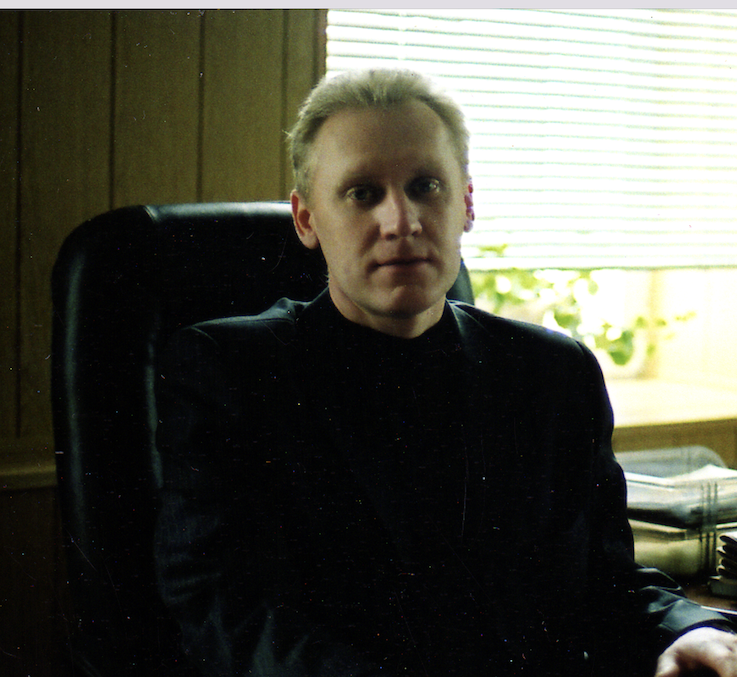
“The last time I visited my great-grandfather’s vodka distillery in 2013, everything had changed. The distillery director, Andrei Aleksandrovich, had been thrown into prison, and the director of the neighbouring distillery had been found hanged. In his place was a stocky man with a neck so wide it was hard to tell where it ended and the rest of his body began.”
Dan continues: “We were staying in a hotel in Konotop, as close to the distillery as it was possible to get lodgings. The man now in charge arrived at 8.30am while we were having breakfast, strode through the front door, totally ignored us and reached across the small bar, grabbing a glass and filling it up with beer from the tap. It was as if he felt he owned everything there.”
Dan could tell at once that the self-important, self-appointed foreman of the factory hated him and Christophe, his director of photography.
“He sneered and talked about us as jokers and worthless idiots, despite the fact we were crammed into his car and had our Russian-speaking translator there. He called us ‘space men’ and spat violently from the window. He told us: “God is great. You – your vodka – you are nothing.”
“Everyone in the distillery with whom we had worked to launch the project was trampled on. They were still there, but only as shells of themselves. They couldn’t look us in the eye.
“You see at that point, [former Ukrainian president Viktor] Yanukovich, who was a puppet of Putin, had seized the reins. He was a gangster. There was talk of pro-Ukrainian politicians landing and being gunned down by Donestsk gangs as they walked off their airplanes. The violence was something beyond what I could understand. I just knew that I could never go back there. It was like a poison.”
As this terrifying scene played out, Dan’s only thought was to get out of Ukraine alive. “We were all just relieved to make it through that day intact – the violence was there, the hatred, the desire to crush us, to extinguish everything.
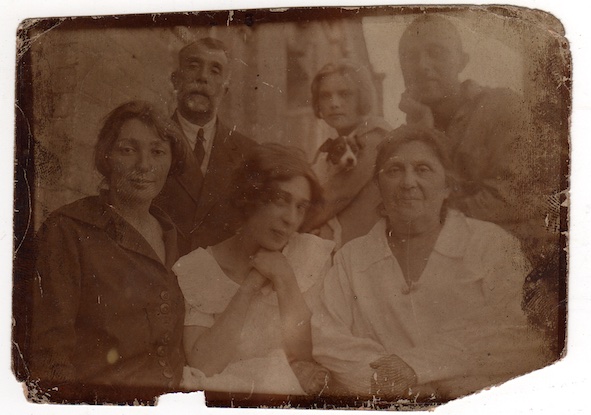
“That was the last time I would ever go back to the distillery and that was the day I knew all the work we had been doing there, all the love and care, had met with a brutal end. My ancestors had left Ukraine in 1918 – what the hell was I doing there?”
Watching events in Ukraine unfold has brought his own terrifying time in Konotop into sharp focus and churned up identical emotion. He has also revisited his grandmother’s manuscript where, within the flowery prose, is the express wish that Ukraine should be independent. “That was what she and others always wanted after the Ukranian Soviet Republic was thrust upon them in 1917,” said Dan. “The notion that the desire for independence is more recent is wrong.”
Witnessing the horror Putin is perpetrating makes Dan more strident in his beliefs. “To anyone on the left, who may have some sympathy with arguments that Putin should be left to do what he likes with Ukraine, that somehow the gang he runs is in some way legitimate, and that Russia is simply trying to redress the balance of power in Europe, I would say to be very careful,” he says.
“I’d be the first to point a finger at Wall Street’s eastward drift of investments and expansion towards those Eastern countries. And I know that Western capitalism is in deep crisis, and has many issues, but all I can remember is how I felt that day in the Ukraine. How much destruction and violence there was in that thick-set Russian man who had taken over the distillery at the supposed behest of the ‘Ukrainian state’. “Spirit distilleries like my great-grandfather’s had been taken over in 1917 and were still run by the state, but the government had been hijacked by Russians.”
Voraciously reading the news and speaking to his friends still in Ukraine has left Dan with a sense of deep dread.
“I have felt that taste of poison I experienced flowing through me and I’m afraid of what Putin might do next. This is a man who has come up through a culture of just taking and taking. That’s what post-perestroika Ukraine was – the flagrant, daylight theft of public infrastructure. And Putin’s rise to power has been the active repression of all freedoms of speech and those who do not conform or obey.”
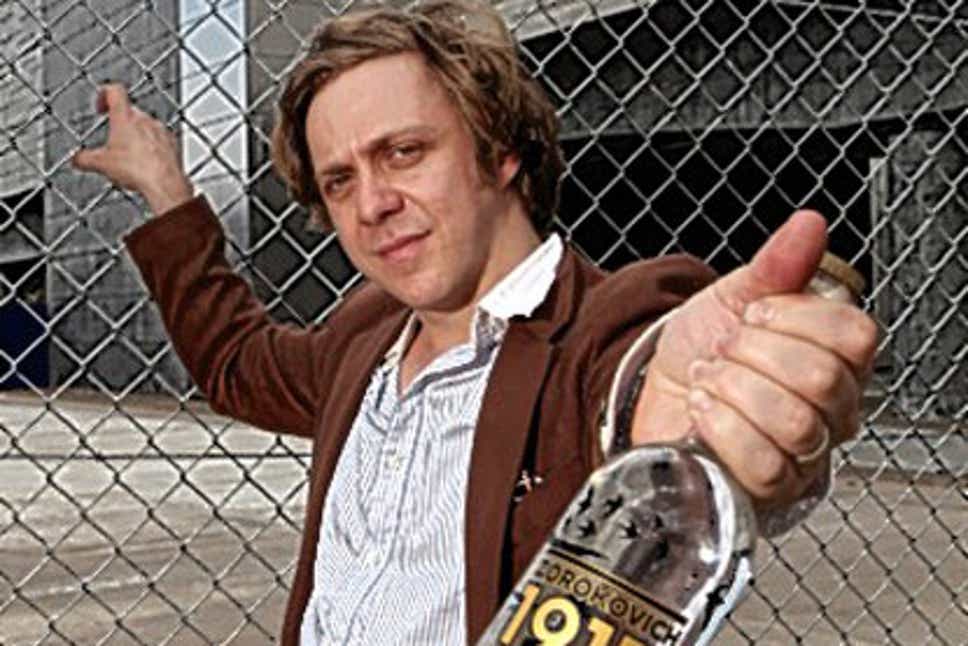
Breaking away from the 24/7 war coverage isn’t easy for Dan, who thinks the entire fate of Europe rests in the Russian leader’s hands – “and in the nuclear suitcase”. “Our children are being told in the playground that ‘nuclear war shouldn’t start for another month or so.’ What are we supposed to tell them?”
From his study of 20th century Russian and Nazi history, Dan thinks standing up to a tyrant seems the only avenue. “But I am certain the costs of doing so will be high.” He pauses and digs deep for some optimism. “I think we must continue to lead lives as absolutely full of meaning as we can, following our purpose and our values. We must be aware of the threat, and not run from it – but try not to focus directly on it and feel diminished by it. Let’s stand up for what is right.”
Such persuasive rhetoric should be toasted, but charging glasses doesn’t feel appropriate for the man who no longer has
a vodka empire.
How to Re-Establish a Vodka Empire is available to watch on Netflix and it will be shown through during first April as part of UKJF’s Eventive virtual cinema platform www.ukjewishfilm.org/

Thank you for helping to make Jewish News the leading source of news and opinion for the UK Jewish community. Today we're asking for your invaluable help to continue putting our community first in everything we do.
For as little as £5 a month you can help sustain the vital work we do in celebrating and standing up for Jewish life in Britain.
Jewish News holds our community together and keeps us connected. Like a synagogue, it’s where people turn to feel part of something bigger. It also proudly shows the rest of Britain the vibrancy and rich culture of modern Jewish life.
You can make a quick and easy one-off or monthly contribution of £5, £10, £20 or any other sum you’re comfortable with.
100% of your donation will help us continue celebrating our community, in all its dynamic diversity...
Engaging
Being a community platform means so much more than producing a newspaper and website. One of our proudest roles is media partnering with our invaluable charities to amplify the outstanding work they do to help us all.
Celebrating
There’s no shortage of oys in the world but Jewish News takes every opportunity to celebrate the joys too, through projects like Night of Heroes, 40 Under 40 and other compelling countdowns that make the community kvell with pride.
Pioneering
In the first collaboration between media outlets from different faiths, Jewish News worked with British Muslim TV and Church Times to produce a list of young activists leading the way on interfaith understanding.
Campaigning
Royal Mail issued a stamp honouring Holocaust hero Sir Nicholas Winton after a Jewish News campaign attracted more than 100,000 backers. Jewish Newsalso produces special editions of the paper highlighting pressing issues including mental health and Holocaust remembrance.
Easy access
In an age when news is readily accessible, Jewish News provides high-quality content free online and offline, removing any financial barriers to connecting people.
Voice of our community to wider society
The Jewish News team regularly appears on TV, radio and on the pages of the national press to comment on stories about the Jewish community. Easy access to the paper on the streets of London also means Jewish News provides an invaluable window into the community for the country at large.
We hope you agree all this is worth preserving.
-
By Brigit Grant
-
By Laurent Vaughan - Senior Associate (Bishop & Sewell Solicitors)
-
By Laurent Vaughan - Senior Associate (Bishop & Sewell Solicitors)
-
By Laurent Vaughan - Senior Associate (Bishop & Sewell Solicitors)
-
By Laurent Vaughan - Senior Associate (Bishop & Sewell Solicitors)


